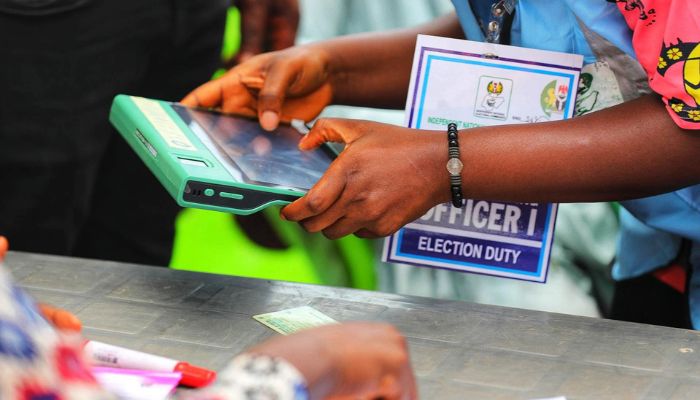The social media has been awash with videos and comments from angry Nigerians, especially from the opposition, who thought their confidence in the Independent Election Commission’s technology, the Bimodal Voter Accreditation System (BVAS), had been betrayed in the wake of the recently ended presidential elections in Nigeria.
On February 25, all 36 of the Nigerian states held their presidential elections.
The Independent Electoral Commission (INEC) had previously assured the news media that the election process would be free, fair, and credible, thanks to the adoption of the tried-and-true technology, BVAS, which would be used to upload the results directly from the polling places to the election viewing portal, IReV, in order to prevent rigging.
Read also: INEC deploys new technologies in the 2023 elections
Allegations on social media
Social media has seen the emergence of several violent films, which the posters claimed were an attempt to intimidate and disenfranchise them from the political process.
The videos allegedly showed ballots being stolen and smuggled while being guarded by security personnel.
Other recordings showed ballots being destroyed and left all over the place, even in drainages.
In the northern regions of the country, voting using permanent voter cards was also observed among children (PVC).
In the northern as well as the eastern regions of the country, there were videos of people thumping the printing on ballot sheets.
Celebrities and voters in Nigeria also claimed, with video evidence, that security agents took their cast ballots without recording them on the sheets or uploading them to the BVAS.
Several said that INEC personnel informed them that there was no internet connection available for uploading the results of the counting to the BVAS. Some claim that the BVAS devices were in flight mode.
The Assurances from INEC
Mahmood Yakubu, the chairman of the Independent National Electoral Commission (INEC), assured Nigerians that the technology, BVAS, has arrived and will be used in the elections “to protect the sanctity of the choice made by Nigerians at the polls” at the 2023 general election in his keynote address at the sixth annual conference of the Guild of Corporate Online Publishers (GOCOP) in Lagos in 2022.
Yakubu gave the populace the assurance that technology would be used in all aspects of the election, including voter accreditation and result administration.
INEC Response to the Criticisms
The Independent National Electoral Commission (INEC) said technical issues prevented it from uploading Saturday’s presidential and National Assembly election results.
INEC said its Results Viewing Portal (IReV) is secure and that the issues were not caused by intrusion or sabotage.
Barrister Festus Okoye, INEC National Commissioner and Chairman, Information and Voter Education Committee, stated this.
Okoye said, “The commission is aware of INEC Results Viewing Portal problems” (IReV).
Unlike off-season elections, the site has been slow and unreliable.
IReV is crucial to our outcomes management process. Hence the commission laments this setback.
The issue is due to technological issues scaling up the IReV from a platform for off-season state elections to one for nationwide general elections.
Glitches and fixes are common in such scenarios.
So, the commission wishes to reassure Nigerians that our systems are secure and that the IReV is not under attack.
“Our technical team is diligently solving all the outstanding difficulties, and IReV users would have seen changes since last night.”
The INEC official assured Nigerians that polling unit results supplied to political parties are safe on the BVAS and IReV portal.
“These results cannot be tampered with, and any disagreement between them and the physical findings used in collation shall be thoroughly reviewed and remediated, in accordance with Section 65 of the Electoral Act 2022.
“While we completely recognise the concerns of the public on this circumstance and welcome various ideas from concerned Nigerians, it is crucial to avoid remarks and actions that can heat up the polity at this time or foster disaffection against the commission.
“We take full responsibility for the problems and regret the grief they have caused the candidates, political parties and the electorate,” he added.
